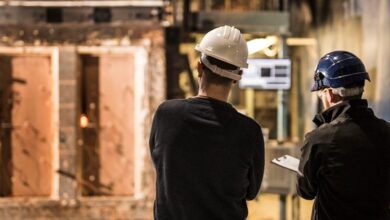Porsche Plants A Big Wet Kiss On The Internal Combustion Engine

[ad_1]
Sign up for daily news updates from CleanTechnica on email. Or follow us on Google News!
Along with the rest of Volkswagen Group, Porsche is seeing more internal combustion engines in its future as it hedges its electric car bets. It’s just business, of course. Isn’t it always? According to CarScoops, operating profit at Porsche dropped 26.7 percent to €5.5 billion ($5.95 billion) in the first three quarters of 2024 compared to the same period in 2023. As with its parent company, it is seeing sales erode in China, which used to provide a steady flow of profits to Volkswagen Group. Recently, however, customers in China have shown a preference for cars from domestic manufacturers, a trend that has dinged profits for other Western automakers, including Mercedes and General Motors.
The Porsche Taycan was refreshed recently — an upgrade that gave it significantly more range — but the exterior was left largely unchanged. It didn’t help. Global deliveries of the Taycan in the first nine months of 2024 were half what they were in the same period of 2023 and fell 35 percent in the US. New data from Porsche reveals China deliveries went into freefall, shrinking by 29 percent to just 43,280. Until recently, China was Porsche’s biggest market, but it is now in third place behind the US and Europe and in danger of falling to fourth after deliveries in the first three quarters of this year fell to just 43,280 units. In Germany, sales of electric cars from all manufacturers tumbled after Germany unexpectedly revoked many of its EV incentives at the end of 2023. Through the end of September, Porsche has delivered just over 14,000 Taycans this year.
Porsche Backtracks On Battery-Powered Cars
To address the changes in the marketplace, Porsche now says it will add internal combustion engines to several models that were developed originally as battery electric vehicles. “A lot of customers in the premium and luxury segment are looking in the direction of combustion-engined cars. There’s a clear trend,” Porsche CFO Lutz Meschke said in a conference call recently. “We will refresh our combustion engine cars, including the Panamera and the Cayenne, and of course, we will continue to rely on plug-in hybrids. When it comes to research and development, then you will see also flexibility in the upcoming years in the direction that we will develop also new combustion engine derivatives in order to give the right answer to customer demand in the different world regions,” Meschke added.
He also emphasized that the Porsche factory in Leipzig is capable of producing combustion engine cars, plug-in hybrids, and battery electric cars all on one production line. But which cars will get which powertrains? The company has not made that clear, but the folks at Autoblog think the next-generation 718 Boxster roadster and Cayman coupe, as well as the Macan — all of which were scheduled to be battery electric only — will be in line for a plug-in hybrid makeover. The gasoline-powered versions of the 718 twins are now out of production.
Porsche is also working on an as yet unnamed 7-row SUV, called K1 internally — because everybody who is anybody today needs to be able to carry an entire basketball team plus the coach every day. The Drive points out that car was initially developed as a battery only model but will likely also get the plug-in treatment — if not a gasoline engine only option. Those changes may not be due entirely to the whims of buyers. Volkswagen Group has been having the Devil’s own time completing its next EV platform, code named SSP. CEO Oliver Blume has acknowledged that it may not be ready to enter production until 2030 — at the earliest. The K1 was likely scheduled to be one of the first models to use that platform.
Adjusting Priorities
The original goal for Porsche was to electrify 80% of its lineup by 2030, with only the iconic 911 retaining combustion engines. However, in a July statement published by Reuters, the company said the transition was taking longer than they expected five years ago. Their new strategy would pivot to satisfying customer demand in the electric sector, which could delay that 80% goal by several years. That raises the issue of more stringent tailpipe emissions standards in the EU that are looming just over the horizon. In theory, the sale of combustion engined cars in the EU will be banned starting in 2035. Porsche publicly opposes that ban. In the meantime, manufactures who do not meet the latest emissions standards are subject to significant fines that could total hundreds of millions of euros.
The idea of sliding some plug-in hybrid powertrains under the hood to help Porsche and others get over the hump until battery prices and the costs of manufacturing fall enough to make their electric offerings competitive with conventional cars is appealing. But development in the auto industry often takes three years or more. Porsche doesn’t have three years to wait, and in the meantime, the reasons for building plug-in hybrids in the first place may change. By the time they get into production, the mood in the market may have shifted again, leaving Porsche and others on the back foot again. The primary reasons why buyers are nervous about electric cars are lack of range, lack of charging infrastructure, and relatively slow charging times. All three of those concerns are being addressed and could be substantially less of a barrier to EV adoption three years from now.
Problems For Volkswagen
That raises another concern. The Volkswagen brand is hemorrhaging money and may need to shutter up to three of its factories in Germany. That suggests money to pay for developing new plug-in hybrid powertrains may be in short supply within Volkswagen Group generally. (It also does not take into consideration that the Porsche and Piëch families, which combined are the largest shareholders in the company, have taken €22 billion out of the company in the past few years — money that perhaps could have been used to fund development efforts at Porsche and other divisions.)
We know that Volkswagen has begun work on plug-in hybrid powertrains already and PHEV mania has crept into the plans for the new Scout division, which was touted as an all-electric brand until all these latest woes came crashing down on Porsche and the rest of Volkswagen Group. The question is, will those new PHEV powertrains be competitive with the ones available in China currently, where extended range EVs that are capable of traveling 600 kilometers or more before needing to be recharged or refilled are all the rage. BYD even has one model that can travel more than 1300 miles without stopping. Yikes! If the new PHEV from Porsche and its corporate siblings have a battery-only range of 30 miles or so, they will probably be DOA in the marketplace.
These are fraught times for legacy automakers. Overall, sales of new cars are down in Europe right when manufacturers need to move lots of vehicles to pay for the development of new models. Emissions standards are ratcheting up while government support for EVs is ratcheting down. And waiting in the wings, Chinese companies are ready to bring in boatloads of less expensive electric cars to undercut the offerings from domestic manufacturers. This may be one of those rare times when corporate bigwigs actually earn their generous salaries.
Chip in a few dollars a month to help support independent cleantech coverage that helps to accelerate the cleantech revolution!
Have a tip for CleanTechnica? Want to advertise? Want to suggest a guest for our CleanTech Talk podcast? Contact us here.
Sign up for our daily newsletter for 15 new cleantech stories a day. Or sign up for our weekly one if daily is too frequent.
CleanTechnica uses affiliate links. See our policy here.
CleanTechnica’s Comment Policy
[ad_2]





